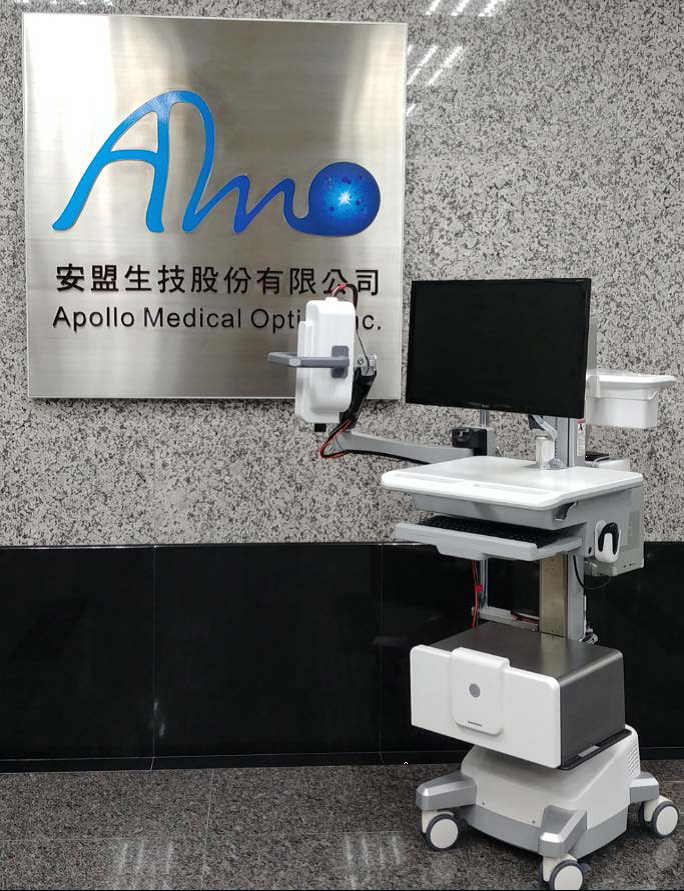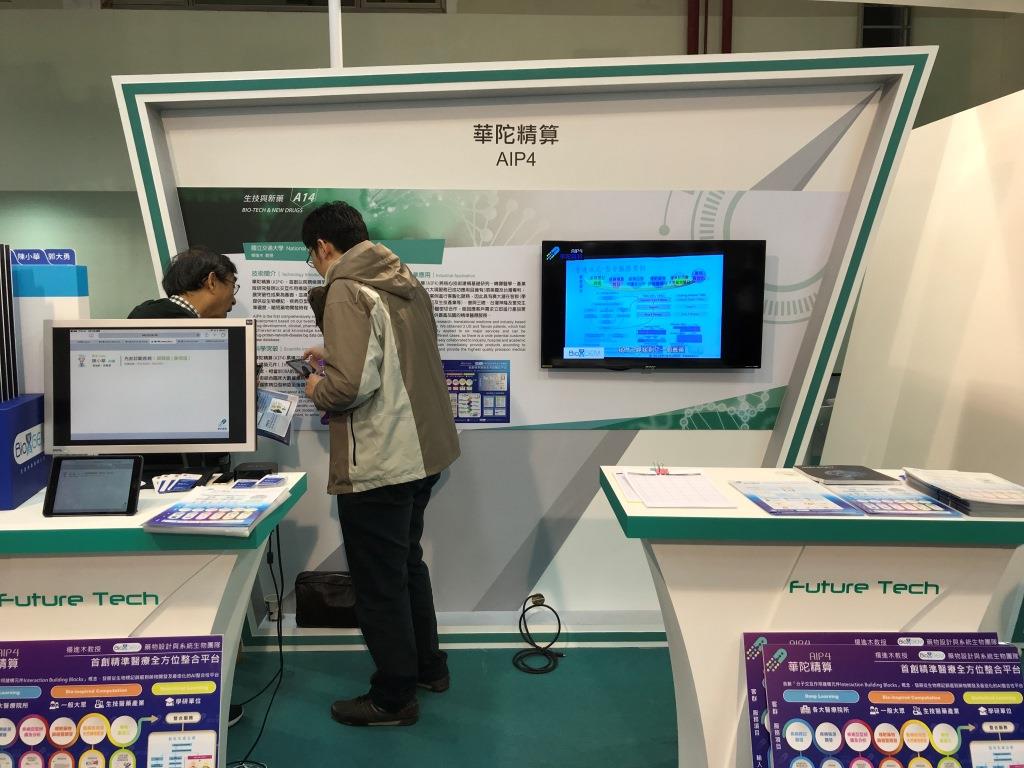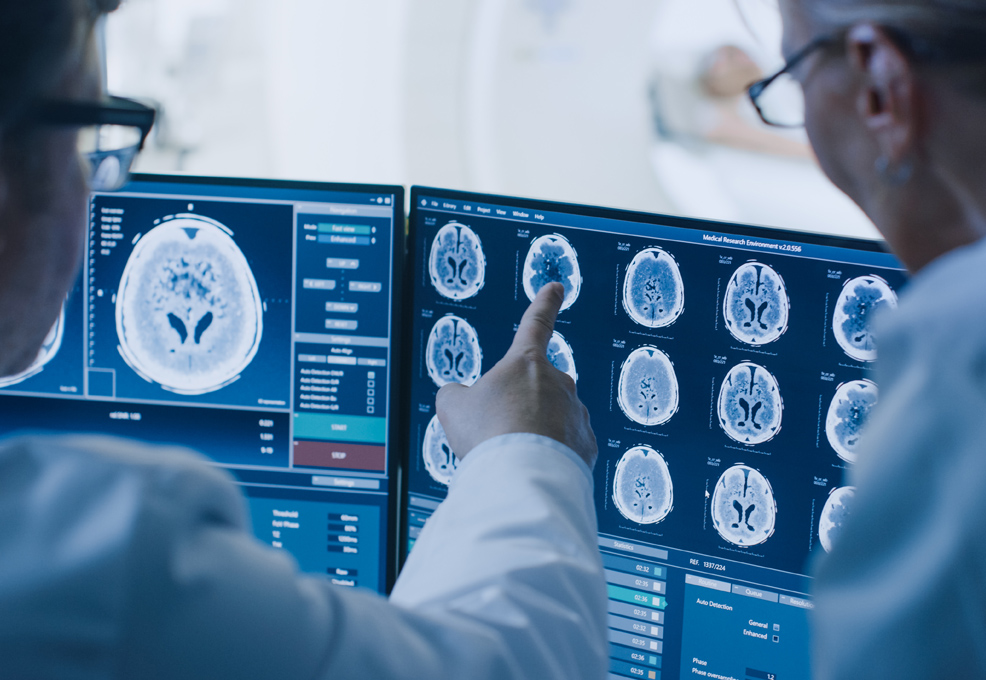Radiogenomics to See the Unseen in Brain Cancer

Author(s)
Li-Chen FuBiography
Li-Chen Fu is currently a Prof. in the Department of Electrical Engineering and Department of Computer Science and Information Engineering at National Taiwan University (NTU), he serves as Director of NTU Center for AI and Advanced Robotics as well as Co-director of MOST/NTU Joint Research Center for AI Technology and All Vista Healthcare. He was awarded Lifetime Distinguished Professorship from his university in 2007. His research interests include robotics, smart home, visual detection and tracking, intelligent vehicle, production scheduling, virtual reality, and control theory & applications.
Academy/University/Organization
National Taiwan UniversityEdited by
MOST All Vista Healthcare Sub-Center-
TAGS
-
Share this article
You are free to share this article under the Attribution 4.0 International license
- LIFE SCIENCES
- Text & Image
- February 26,2019
Following the recent wave of AI development, the Ministry of Science and Technology (MOST) has been actively encouraging the development of AI, and one of the most important policies is founding the four AI Innovation Research Centers. The sub-center of the AI innovation research center of MOST in National Taiwan University (NTU) is the “All-Vista Healthcare sub-center.” The sub-center expects to lead domestic research teams specializing in Biomedicine to promote the current level of domestic medicine, and in turn to improve the health and well-being of people. We hope to implement AI technologies for developing automatic inferencing and diagnosis systems, which could assist doctors’ diagnosis with the pre-analyzed results of a large amount of data such as medical records, diagnostic cases, and literature reviews); furthermore, the AI technology of DNN will be widely used for the automatic enhancement and auxiliary interpretation of medical imaging (2D/3D ultrasonic or elastography, X-ray, MRI, or CT). The technologies and methodologies of AI will be deeply connected with the application side to develop systems which fit the actual application.

It is self-evident how important and influential AI is for the whole world and the life of humans in the future. Following the recent wave of AI development, the MOST has been actively encouraging the development of AI, and one of the most important policies is founding the four AI Innovation Research Centers. The sub-center of the AI innovation research center of MOST in National Taiwan University (NTU), the “All-Vista Healthcare sub-center,” aims at advancements in the field of Biomedicine with AI, to develop AI technologies in order to enhance the health and well-being of people. We implement AI technologies to develop automatic inferencing and diagnosis systems, which could assist doctors’ diagnosis with the pre-analyzed results of a large amount of data, such as medical records, diagnostic cases, and literature reviews. Furthermore, the Deep Neural Networks (DNN) of AI technologies will be widely used for the automatic enhancement and auxiliary interpretation of medical imaging (2D/3D ultrasonic or elastography, X-ray, MRI, or CT). The technologies and methodologies of AI are deeply connected with application to develop systems which fit the actual application.
The research teams of the “All-Vista Healthcare sub-center” have achieved fruitful accomplishments. For instance, the technical development of cellular-resolution OCT by the collaboration of the research team of Prof. Sheng-Lung Huang and Apollo Medical Optics, Ltd., has developed key optical elements and technologies. This innovative development has pushed the previous research on OCT to another level. Another research team, led by Prof. Ruey-Feng Chang, transferred its technical skill, Magnetic Positioning Breast Ultrasound Reporting and Tumor Detection Diagnosis System, to a Taiwan local startup, TaiHao Medical Inc. in 2013. TaiHao soon successfully commercialized this technical skill and so far three products have received FDA certification (K151075, K171309, K171709) while two have received TFDA Certification (MHW Medical Device Manufacturing No.006147, 005966). In the meantime, Descartes Co., a Japanese company, has also begun strategic collaboration with Prof. Chang’s lab and TaiHao. The research project not only attracts Japanese companies to invest in Taiwan but also introduces Taiwan-made AI products to Japan. The research team is expected to continue upgrading the core system of the above product with more cutting-edge skills, which will definitely make great contributions to Taiwan’s AI-Medical industry.
Another accomplishment is achieved by the research team led by Prof. Fei-Pei Lai. Prof. Lai has contributed to the collaboration between National Taiwan University Hospital (NTUH) and Quanta Computer Inc. By signing a Memorandum of Understanding (MOU), both parties wish to focus on the industry of smart healthcare by strategic collaboration, and to promote the application of AI in the medical system of NTUH with the research results of the collaboration. The project proposed by the research team of Prof. Jin-Moon Yang is the “Intelligent Computing Precision Medical and Drug Development Platform,” which is based on the accumulation of computational biology, drug development, clinical, pharmaceutical and industrial breakthrough progress, achievements and knowledge bases. The platform combines bio-inspired computation, deep learning and statistical learning to seamlessly integrate the front and rear ends. In 2018, the team participated in The Third Beijing-Taiwan Startup Contest with the name “華陀精算”, and was one of the ten nominated teams of advanced technology in Taiwan. They were also awarded in the 2018 Future Tech, and acknowledged by Dr. Liang-Gee Chen, the Minister of MOST, on Facebook.

Cellular-resolution OCT engineering model

華陀精算, 2018 Future Tech
The sub-center is also active in building up global relationships. One example is a newly established partnership between NTU and Stanford University in 2018. This partnership focuses on enhancing AI collaboration in biotechnology and healthcare. It is expected that NTU College of Medicine, NTUH, and Stanford School of Medicine will build a research cluster of AI in biotechnology and medicine. The other example, the research team of Prof. Wei-Chung Wang has collaborated with the National Center for Theoretical Sciences (NCTS) and the Mount Sinai Health System, USA, in holding “NCTS Health Hackathon 2018.” The major theme of the hackathon is “The Intelligent Hospital,” which is to integrate professional knowledge and technologies regarding Medicine, AI, Mathematics, Supercomputing and Socioeconomics, to build up a new kind of medical structure.

NCTS Health Hackathon 2018
The “All-Vista Healthcare sub-center” aims to establish a world-level platform to facilitate AI application-oriented data and technology exploration. This sub-center is expected to lead domestic research teams specializing in Biomedicine to promote the current level of domestic medicine, and in turn to improve the health and well-being of our fellow people. Another aim of the sub-center is to build up a critical cluster of biomedical research integrated with AI, so that our substantial domestic medical achievements enhanced by the AI techniques can be more easily recognized worldwide.
STAY CONNECTED. SUBSCRIBE TO OUR NEWSLETTER.
Add your information below to receive daily updates.




